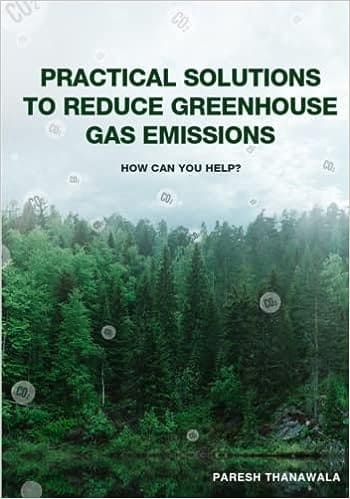Definition
Greenhouse gases are gases in Earth’s atmosphere that trap heat from the sun. They let sunlight pass through the atmosphere, but they prevent the heat that the sunlight brings from leaving the atmosphere.
Expanded Explanation
Greenhouse gases include water vapor, carbon dioxide (CO2), methane (CH4), nitrous oxide (N2O), and fluorinated gases. These gases occur naturally, but human activities, such as burning fossil fuels, deforestation, and industrial processes, significantly increase their concentration in the atmosphere, leading to global warming and climate change.
Importance
Greenhouse gases play a crucial role in maintaining Earth’s temperature. Without them, our planet would be too cold to support life as we know it. However, the increased levels of greenhouse gases due to human activities are causing a rise in Earth’s average temperature, leading to climate change. Understanding greenhouse gases is fundamental to addressing this global issue.
Context and Usage
Greenhouse gases are discussed in the context of climate science and environmental policy. They are central to discussions about global warming, climate change, renewable energy, and sustainability.
Examples
- Example 1: The burning of fossil fuels for electricity, heat, and transportation is the largest single source of global greenhouse gas emissions.
- Example 2: Methane, a potent greenhouse gas, is released during the production and transport of coal, oil, and natural gas.
Understanding Greenhouse Gases
A common misunderstanding is that all greenhouse gases are harmful. While excessive levels can lead to global warming, some amount of greenhouse gases is necessary to keep Earth’s temperature habitable.
Related Glossary Terms
- Carbon Dioxide: One of the most prevalent greenhouse gases, primarily produced by burning fossil fuels.
- Global Warming: The long-term increase in Earth’s average temperature, largely due to increased greenhouse gas emissions.
Visual and Reading Aids
External Resources
Related Articles
- Best Carbon Footprint Test: Uncover Your Impact Now: Learn how your activities contribute to greenhouse gas emissions and how to reduce your carbon footprint
- Evaluating the Carbon Footprint Average: Insights and Implications: Understand average carbon footprints and their implications for greenhouse gas concentrations and climate change

